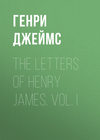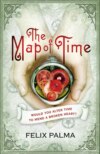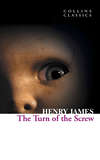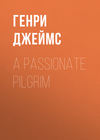Czytaj książkę: «The Letters of Henry James. Vol. I», strona 16
To the Countess of Jersey
The "little story" is The Lesson of the Master, the opening scenes of which take place at "Summersoft." Lord Jersey was at this time Governor of New South Wales.
Hôtel de Sienne, Siena.June 11th [1892].
Dear Lady Jersey,
Your kind letter finds me in a foreign land—the land in the world, I suppose, least like New South Wales—and gives me very great pleasure. It is charming to hear your voice so distinctly round so many corners of the globe. Yes, "Summersoft" did venture in a timorous and hesitating manner to be an affectionate and yet respectful reminiscence of Osterley the exquisite—of whose folded and deserted charms I can't bear to think. But I beg you to believe—as indeed you will have perceived if you were so good as to look at the little story—that the attempted resemblance was only a matter of the dear old cubic sofa-cushions and objects of the same delightful order, and not of the human furniture of the house. I take the liberty of being, in your absence, so homesick for Osterley that I can scarcely conceive of the pangs by which you and your children and Lord Jersey—with your much greater right to indulge in them—must sometimes be visited. I am delighted, however, to gather from your letter that you have occupations and interests which drop a kindly veil over that dreamland. It must indeed, I can imagine, be a satisfaction to be really lending a hand in such a great young growing world—doing something in it and with it and for it. May the sense of all this make the years roll smoothly—till they roll you back into our ken.... Please give my very friendliest remembrance to Lord Jersey—to whom I wish—as to all of you—and indeed to myself, that you may serve your term with an appearance of rapidity. And please believe, dear Lady Jersey, that when it is over, no one will more heartily rejoice than yours most faithfully,
HENRY JAMES.
To Charles Eliot Norton
Hôtel de Sienne, Siena.July 4th, 1892.
My dear Charles,
Too long have I owed you a letter and too many times have your generosities made me blush for my silence. I have received beautiful books from you and they have given me almost more pleasure as signs of your remembrance than as symbols of your wisdom and worth. The Purgatorio reached me just before I came abroad—or a short time—and I was delighted to know that you continue to find time and strength for labours so various and so arduous. Great glory is yours—for making something else come out of America than railway-smashes and young ladies for lords. During a singularly charming month that I have been spending in this most loveable old city I have often thought of you and wished I had a small fraction of your power to put the soul of history into Italian things. But I believe I shouldn't love Siena any better even if I knew it better. I am very happy indeed to feel that—as I grow older—many things come and go, but Italy remains. I have been here many times—regularly every year or almost, for many years now, but the spell, the charm, the magic is still in the air. I always try, between May and August, to give London a wide berth, and I find these parts far and away most pleasant when the summer has begun and the barbarians have fled. As one stays and stays on here—I mean on this spot—one feels how untouched Siena really is by the modern hand. Yesterday was the Palio of the ten contrade, and though I believe it is not so intense a festival as the second one—of Aug. 15th (you have probably—or certainly—seen them both)—it was a most curious and characteristic (of an uninterrupted tradition) spectacle. The Marchese Chigi asked me and a couple of friends—or rather asked them, and me with them—to see it from the balcony of his extraordinarily fine old palace, where by the way he has a large collection of Etruscan and Tarentine treasures—a collection to break the heart of envy. My friends were Paul Bourget, the French essayist and novelist (some of whose work you probably know,) and his very remarkably charming, cultivated and interesting young wife. They have been living in Italy these two years—ever since their marriage, and I have been living much with them here. Bourget is a very interesting mind—and figure altogether—and the first—easily, to my sense—of all the talkers I have ever encountered. But it would take me much too far to begin to give you a portrait of such a complicated cosmopolitan Frenchman as he! But they departed, alas, this morning, for the Piedmontese Alps, and I take my way, in a couple of hours, to Venice, where I spend but a few days—with perhaps a few more at Asolo—before joining my brother William and his wife for a month in Switzerland. After that I expect to return to London for the last of the summer and the early autumn—the season I prefer there above all others. But before I do this I wish I could talk to you more about this sweet old Siena. I have been talking for a month about it with Bourget—but how much better it would have been for both of us if you could have broken in and taken up the tale! But you did, sometimes, very happily—for Mme. Paul knows you by heart (she is the Madonna of cosmopolitan culture) and cites you with great effect. Have you read P. B.'s Sensations d'Italie? If you haven't, do—it is one of the most exquisite of books. Have you read any of his novels? If you haven't, don't, though they have remarkable parts. Make an exception, however, for Terre Promise, which is to appear a few months hence, and which I have been reading in proof, here—if on trial, indeed, you find you can stand so suffocating an analysis. It is perhaps "psychology" gone mad—but it is an extraordinary production. A fortnight ago, on a singularly lovely Sunday, we drove to San Gimignano and back. I had never been there before, and the whole day was a delight. There are of course four Americans living at San G.—one of whom proved afterwards to have been an American "lady-newspaper-correspondent" furious at having missed two such birds as Bourget and me—whom a single stone from that rugged old quarry would have brought down. But she didn't know us until we had departed and we fortunately didn't suspect her till a suppliant card reached us two days later at Siena. We were in the hands of the good old Canonico—the proposito, as they call him—and he put us gently through. You remember well enough of course—though to such a far-away world your Siena summer must seem to belong—the rich loveliness, at this moment, of this exquisite old Tuscany. One can't say enough about it, and the way the great sea of growing things—the corn and the vines and the olives—breaks in green surges at the very foot of the old golden-brown ramparts, is one of the most enchanting features of Siena. There is still never a suburb to speak of save in the quarter of the railway-station, and everywhere you look out of back-windows and back-doors and off terraces and over parapets straight down into the golden grain and the tangled poderi. Every evening we have gone to walk in the Lizza and hang over the bastions of the Castello; where the near views and the far, and the late afternoons and the sunsets and the mountains have made us say again and again that we could never, never go away. But we are coming back, and I greatly wish you were. We went the other day to the archivio, which I had never seen before, and where I was amazed and fascinated. (It is a great luxury to be in Italy with a French celebrity—he is so tremendously known and well treated, as the "likes" of us can never be, and one comes in for some of his privileges.) You of course probably know, however, what the fullness, detail, continuity and curiosity of the records of this place are—filling with their visible, palpable medievalism the great upper chamber of Pal. Piccolomini.
Basta—I have my trunk to pack and my reckoning to pay. I am very glad to have shaken hands with you before I go. I saw dear Burne-Jones tolerably often this spring—often unwell, but almost always stippling away. He is the most loveable of men and the most disinterested of artists, but sometimes I wish that he set himself a different order of tasks. Painting—as I feel it most—it is true I have ceased to feel it very much—is, with him, more and more "out of it." There remains, however, a beautiful poetry.... I want to ask you 20 questions about [Lowell's] papers—but I feel it isn't fair—and I must wait and see. I hope this work—and your masses of other work—don't take all your holiday.... I shall send this to Ashfield, and if you are there will you give, for me, a very cordial greeting to that mythical man George Curtis? I embrace all your house and am, my dear Charles, very affectionately yours,
HENRY JAMES.
To W. D. Howells
34 De Vere Gardens, W.Jan. 29th [1893].
My dear Howells,
Two beneficent notes have I had from you since last I wrote you a word: one in regard to looking, effectively, after some Cosmopolitan business in the autumn; the other a heavenly remark or two (still further sublimated by Mildred's lovely photograph) in lately forwarding me—with a courtesy worthy of a better cause—a particularly shameless autograph-seeker's letter. For such and all of these good gifts I am more thankful than the hurrying, days have left me much of a chance to tell you. Most especially am I grateful for the portrait of the beautiful, beautiful maiden. Please thank her from me, if not for sending it, at least for so felicitously sitting for it. It makes me jump the torrent of the years and reconstruct from her fine features the mythological past—a still tenderer youth than her present youth. (I ought to be able to mean my own; but I can't manage it—her profile won't help me to that.) I envy you and your wife her company and I rejoice for you in her presence. I rejoice for myself, my dear Howells, about your so delicate words to me in regard to a bit of recent work. They go to my heart—they go perhaps still straighter to my head! I am so utterly lonely here—on the "literary plane"—that it is the strangest as well as the sweetest sensation to be conscious in the boundless void—the dim desert sands—of any human approach at all or any kindly speech. Therefore please be very affectionately thanked.—All this while I never see anything that you yourself have lately flowered with—I mean the volumes that you freehandedly scatter. I console myself with believing that one or two of your last serial fictions are not volumes yet. Please hold them not back from soon becoming so. I see you are drawing a longish bow in the Cosmopolitan—but I only read you when I can sit down to a continuous feast and all the courses. You asked me in your penultimate—I am talking now of your early-in-the-winter letter—if I should object to being made a feature of your composed reminiscences. To which I reply that I only wish that I could enrich them better. I won't pretend that I like being written about—the sight of my own name on a printed page makes me as ill (and the sensibility increases strangely with time) as that of one of my creations makes me well. I have a morbid passion for personal privacy and a standing quarrel with the blundering publicities of the age. I wince even at eulogy, and I wither (for exactly 2 minutes and 1/2) at any qualification of adulation. But on the other hand I like, I love, to be remembered by you and I surrender myself to your discretion. I hope your winter, and Mrs. Howells' and the fairest of daughters's, is rich and full and sane. How you must miss the Boy. I go abroad soon and hope to see him in Paris. When do you do the same? Yours always, my dear Howells,
HENRY JAMES.
To Robert Louis Stevenson
34 De Vere Gardens, W.Feb. 17th, 1893.
My dear distant Louis,
The charmingest thing that had happened to me for a year was the advent of your reassuring note of Dec. 5th (not 1891—my dear time-deluded islander: it is enviable to see you so luxuriously "out." When you indulge in the eccentricity of a date you make it eccentric indeed.) I call your good letter reassuring simply on the general ground of its making you credible for an hour. You are otherwise wholly of the stuff that dreams are made of. I think this is why I don't keep writing to you, don't talk to you, as it were, in my sleep. Please don't think I forget you or am indifferent to anything that concerns you. The mere thought of you is better company than almost any that is tangible to me here, and London is more peopled to me by your living in Samoa than by the residence of almost anybody else in Kensington or Chelsea. I fix my curiosity on you all the while and try to understand your politics and your perils and your public life. If in these efforts I make a poor figure it is only because you are so wantonly away. Then I think I envy you too much—your climate, your thrill of life, your magnificent facility. You judge well that I have far too little of this last—though you can't judge how much more and more difficult I find it every day to write. None the less I am presently putting forth, almost with exact simultaneity, three little (distinct) books—2 volumes of penny fiction and one of little essays, all material gathered, no doubt, from sources in which you may already have encountered some of it. However this may be, the matter shall again be (D.V.) deposited on your coral strand. Most refreshing, even while not wholly convincing, was the cool trade-wind (is the trade-wind cool?) of your criticism of some of ces messieurs. I grant you Hardy with all my heart.... I am meek and ashamed where the public clatter is deafening—so I bowed my head and let "Tess of the D.'s" pass. But oh yes, dear Louis, she is vile. The pretence of "sexuality" is only equalled by the absence of it, and the abomination of the language by the author's reputation for style. There are indeed some pretty smells and sights and sounds. But you have better ones in Polynesia. On the other hand I can't go with you three yards in your toleration either of – or of –. Let me add that I can't read them, so I don't know anything about them. All the same I make no bones to pronounce them shameless industriels and their works only glories of Birmingham. You will have gathered that I delight in your year of literary prowess. None the less I haven't read a word of you since the brave and beautiful Wrecker. I won't touch you till I can feel that I embrace you in the embracing cover. So it is that I languish till the things now announced appear. Colvin makes me impatient for David Balfour—but doesn't yet stay my stomach with the Beach of Falesà.... Mrs. Sitwell me fait part of every savoury scrap she gets from you. I know what you all magnificently eat, and what dear Mrs. Louis splendidly (but not somewhat transparently—no?) wears. Please assure that intensely-remembered lady of my dumb fidelity. I am told your mother nears our shores and I promise myself joy on seeing her and pumping her. I don't know, however, alas, how long this ceremony may be delayed, as I go to Italy, for all the blessed spring, next week. I have been in London without an hour's absence since the middle of Aug. last. I hear you utter some island objurgation, and go splashing, to banish the stuffy image, into the sapphire sea. Is it all a fable that you will come some month to the Mediterranean? I would go to the Pillars of Hercules to greet you. Give my love to the lusty and literary Lloyd. I am very glad to observe him spreading his wings. There is absolutely nothing to send you. The Muses are dumb, and in France as well. Of Bourget's big 7 franc Cosmopolis I have, alas, purchased three copies—and given them away; but even if I were to send you one you would find it too round and round the subject—which heaven knows it is—for your taste. I will try and despatch you the charming little "Etui de Nacre" of Anatole France—a real master. Vale—age. Yours, my dear Louis, in a kind of hopeful despair and a clinging alienation,
HENRY JAMES.
To Mrs. Edmund Gosse
Hôtel Westminster, Paris.March 21st [1893].
Dear Mrs. Gosse,
Many thanks for your better news—and especially for the good news that Gosse is coming to Paris. I shall be very glad to see him and shall rejoice to take him gently by that injured—but I trust soon to be reanimated—member. Please express this to him, with all my sympathy and impatience. Won't he—or won't you (though indeed I shall cull the precious date from Harland,) give me a hint, in advance of the particular moment at which one may look for him? Please tell him confidently to expect that Paris will create within him afresh all the finest pulses of life. It is mild, sunny, splendid—blond and fair, all in order for his approach. I allude of course to the specious allurements of its exterior. The state is odorously rotten—but everything else is charming. And then it's such a blessing, after long grief and pain, to find the arms of a climate around us once again! Hasten, my dear Edmund, to be healed.
Thank heaven, my allusion to my own manual distress was mainly a florid figure. My hand is infirm—but I am not yet thinking of the knife. Mille choses to the Terrace.
Yours and Gosse's always,HENRY JAMES.
To Edmund Gosse
The seductive "Queen of the Golconda," and of the Boulevard St. Michel, appears in Mr. Gosse's anecdote of Paul Verlaine (French Profiles.) The passage of Loti's Matelot, to which H. J. refers, is the following: "Donc, ils en venaient à s'aimer d'une également pure tendresse, tous les deux. Elle, ignorante des choses d'amour et lisant chaque soir sa bible; elle, destinée à rester inutilement fraîche et jeune encore pendant quelques printemps pâles comme celui-ci, puis à vieillir et se faner dans l'enserrement monotone de ces mêmes rues et de ces mêmes murs. Lui, gâté déjà par les baisers et les étreintes, ayant le monde pour habitation changeante, appelé à partir, peut-être demain, pour ne revenir jamais et laisser son corps aux mers lointaines."
Hôtel Westminster, Paris.Monday [May 1st, 1893].
My dear Gosse,
I have delayed too long to thank you for your genial last: which please attribute to the misery of my Boulevard-baffled aspirations. Paris n'est plus possible—from any point of view—and I leave it tomorrow or next day, when my address will become: Hotel National, Lucerne. I join my brother there for a short time. This place continues to rengorger with sunshine and sauces, not to mention other appeals to the senses and pitfalls to the pocket. I am not alluding in particular to the Queen of Golconda! I have read Matelot more or less over again; for the extreme penury of the idea in Loti, and the almost puerile thinness of this particular donnée, wean me not a jot from the irresistible charm the rascal's very limitations have for me. I drink him down as he is—like a philtre or a baiser, and the coloration of his moindre mots has a peculiar magic for me. Read aloud to yourself the passage ending section XXXV—the upper part of page 165, and perhaps you will find in it something of the same strange eloquence of suggestion and rhythm as I do: which is what literature gives when it is most exquisite and which constitutes its sovereign value and its resistance to devouring time. And yet what niaiseries! Paris continues gorgeous and rainless, but less torrid. I have become inured to fear as careless of penalties. There are no new books but old papiers de famille et d'arrière-boutique dished up. Poor Harland came and spent 2 or 3 hours with me the other afternoon—at a café-front and on chairs in the Champs-Elysées. He looked better than the time previous, but not well; and I am afraid things are not too well with him. One would like to help him—and I try to—in talk; but he is not too helpable, for there is a chasm too deep to bridge, I fear, in the pitfall of his literary longings unaccompanied by the faculty. Apropos of such things I am very glad to see your faculty is reflowering. I shall return to England for the volume. Are you writing about Symonds? Vale—especially in the manual part. And valeat your dame compagne.
Yours, my dear Gosse, always,HENRY JAMES.




















